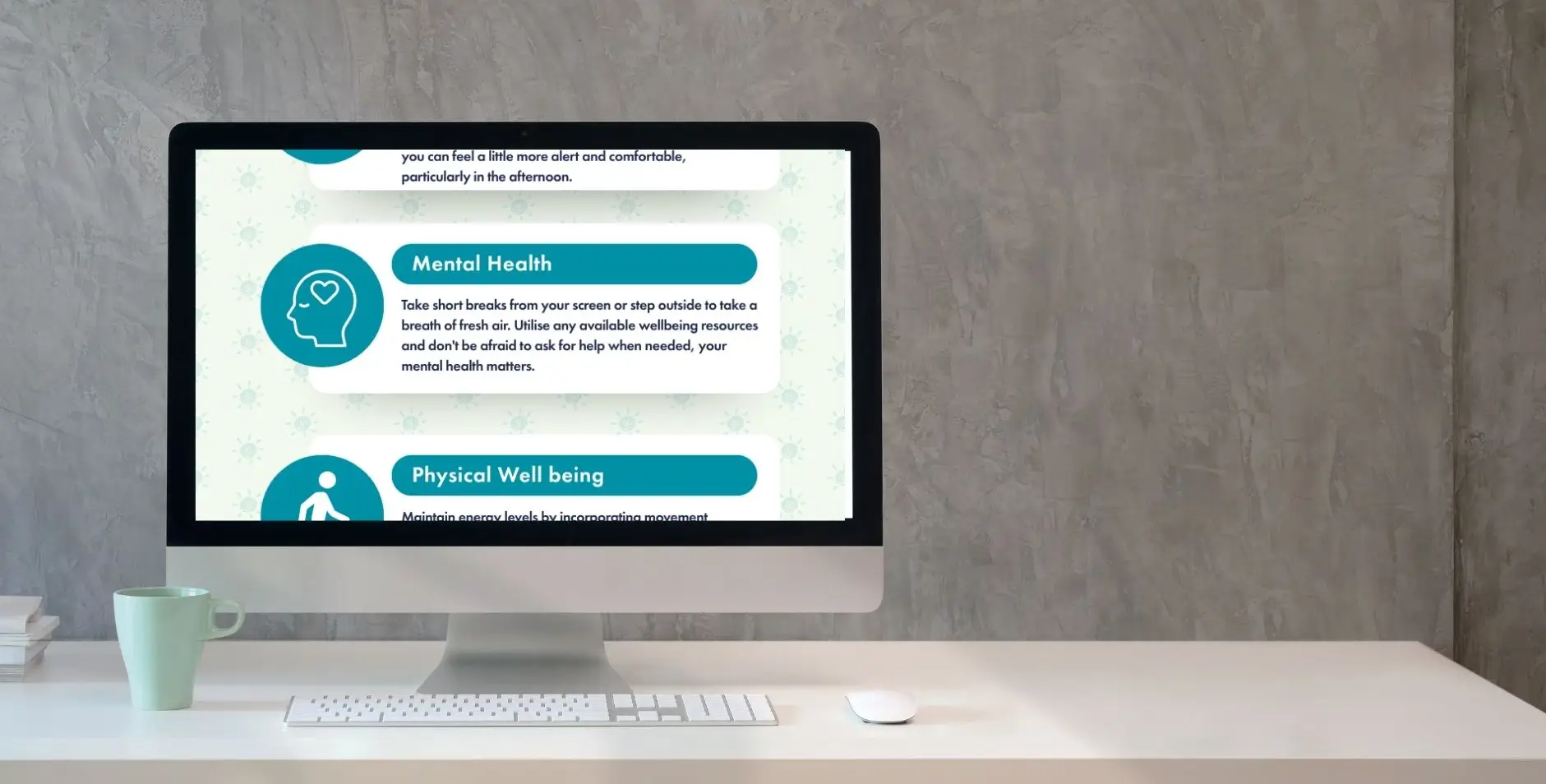Prioritising Mental Health at Work: Why it Matters More than Ever
20 May, 20255Stress. Burnout. Anxiety. We’re seeing more and more of it. In today’s f...

Stress. Burnout. Anxiety.
We’re seeing more and more of it. In today’s fast-paced, always-on world, the line between work and home life has blurred, and it’s no secret that this is having a real impact on people’s mental health.
As employers, we can’t ignore this. Supporting the mental health of our workforce isn’t just about ticking boxes or marking awareness days; it’s about creating a workplace where people feel genuinely supported, understood and safe to be themselves.
This blog explores why mental health needs to part of your company’s every day thinking, how it can benefit your business and some simply steps you can take to build a healthier workplace.
The real cost of poor mental health
Let’s start with facts.
A 2024 report from Deloitte found that poor mental health costs UK employers £51 billion a year. On top of that, 63% of employees are showing at least one sign of burnout; things like exhaustion and feeling disconnected from their work. That’s up from 51% just a few years ago.
The good news? Businesses that invest in mental health support typically see strong return. On average, £4.70 back for every £1 spent.
What employers can do
You don’t need huge budgets or in-house experts to make a difference to your workforce. Small, thoughtful changes done consistently can have a big impact.
Create a culture of openness
Let’s be honest, too many people still feel like they must pretend they’re fine at work. This leads to presenteeism, turning up but not being able to do your best because you’re struggling. It costs UK businesses around £24 billion a year.
You can prevent this by encouraging honest conversations. Train your managers to spot when someone’s not themselves and give them the tools to respond with empathy, not judgement. Let people know it’s okay to not be okay and show them you mean it.
Offer practical help
Policies are a good start, but support needs to be real and accessible. If you can, offer things like:
- Access to counselling or Employee Assistance Programmes (EAP)
- Mental Health First Aiders
- Resources, toolkits or shared wellbeing tips
Simple acts, like signposting support regularly or talking about wellbeing in team meetings, help make mental health part of everyday conversations.
Lead by example
Please take their cue from the top. If leaders don’t walk the walk no one else will either.
That means leaving on time, taking proper breaks and being open about personal boundaries or even self-care habits. When senior teams model healthy work behaviours, it gives everyone permission to do the same.
Check in, not up
Not every 1-2-1 should be just about tasks or targets. Make space to ask, “how are you doing” and mean it. These conversations don’t have to be deep or uncomfortable. Sometimes, just knowing someone’s listening makes all the difference.
Be realistic about workloads
Yes, it’s a tough climate right now. Teams are stretched and expectations are high, but constant pressure and unrealistic deadlines lead straight to burnout.
Review workloads regularly. Make sure people have what they need to do their jobs well. If you need to ask more of your team, be honest, supportive and ready to adjust where needed.
Why it’s worth it
When people feel supported at work, they show up differently. They’re more productive, engaged and likely to stay. Beyond the numbers, it’s just the right thing to do. A workplace that values mental health is a workplace where people can bring their whole selves and do their best work.
Supporting mental health at work doesn’t mean having all the answers. It means listening, taking small steps and building a culture of care over time.
Start with simple actions. Talk about mental health. Show you care. Support your people.
Because when we put the wellbeing at the heart of work, everybody wins.















